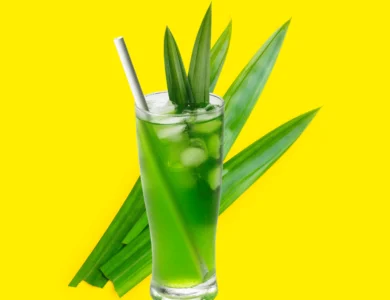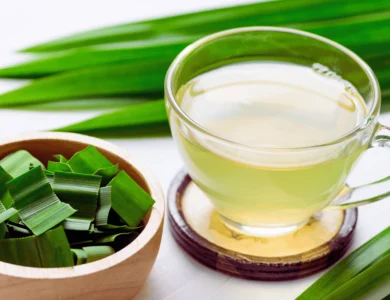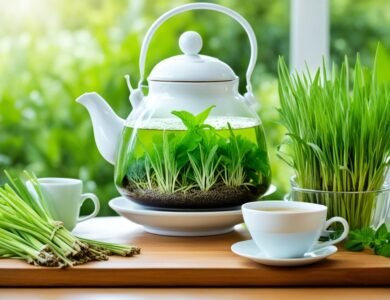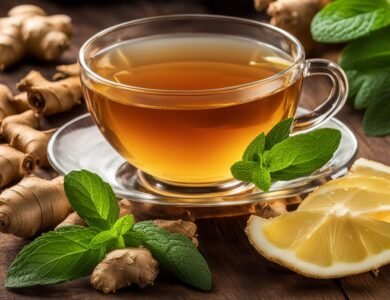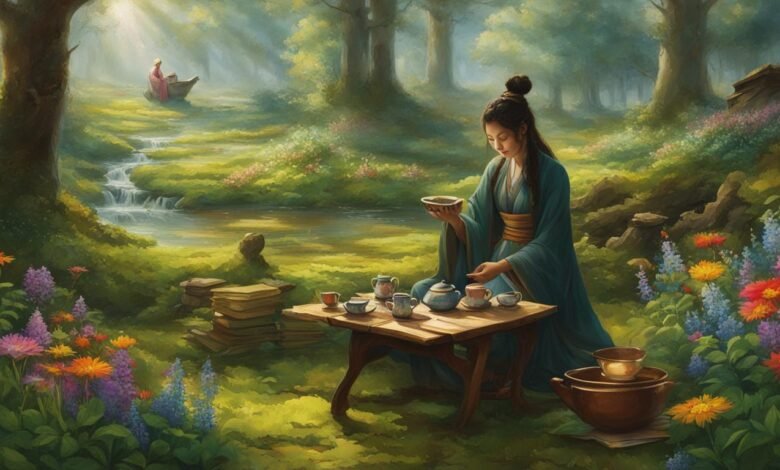
Ancient herbal teas have captivated civilizations for centuries with their rich history, cultural significance, and medicinal properties hidden within the herbs. These traditional brews offer a natural and holistic approach to health, providing remedies for modern ailments and unlocking a world of flavors and aromas.
In this article, we will delve into the intriguing history behind herbal teas, explore the cultural significance they hold, and uncover the medicinal properties nestled within the various herbs. We will also discover traditional herbal tea recipes, learn about the brewing methods used to extract their beneficial compounds, and delve into the ancient remedies that can enhance our overall well-being.
Join us on this insightful journey as we take a glimpse into the world of ancient herbal teas and discover the secrets that can rejuvenate our minds, bodies, and spirits.
The History and Cultural Significance of Herbal Teas
Ancient herbal teas have a fascinating history that is deeply intertwined with various cultures around the world. Different regions and civilizations have developed their unique concoctions, each with its own cultural significance.
From the Chinese tradition of tea ceremonies to the Ayurvedic healing practices of India, herbal teas have played a vital role in rituals, celebrations, and everyday life. They have been passed down through generations, carrying the wisdom and knowledge of ancient healers.
By understanding the history and cultural significance of herbal teas, we can appreciate their value and embrace the holistic approach to health they offer. Let’s dive deep into the rich heritage of ancient herbal teas and explore the hidden gems of their cultural importance.
Through centuries of usage, ancient herbal teas have become an integral part of various cultural practices. The Chinese civilization, known for its deep connection with nature, developed elaborate tea ceremonies to honor their ancestors and promote harmony among individuals.
Meanwhile, the Ayurvedic tradition in India recognized the medicinal properties of herbs and incorporated them into herbal teas to balance the body, mind, and spirit. These teas were prescribed based on the individual’s unique constitution, catering to their specific health needs.
In Africa, indigenous tribes have passed down their herbal tea recipes through generations, utilizing local herbs to address a wide range of health conditions. These teas not only provided physical healing but also acted as rituals to connect with their ancestral roots and promote communal well-being.
In Europe, herbal teas have been a part of folklore and traditional remedies. From chamomile for soothing sleep to nettle for boosting overall vitality, different herbs were used to address common ailments and promote holistic wellness.
The history and cultural significance of herbal teas offer a glimpse into the ancient wisdom and beliefs that shaped different societies. By embracing these traditional practices, we can not only improve our physical health but also connect with our roots and honor the legacy of our ancestors.
Medicinal Properties in Herbs
Herbs used in ancient herbal teas possess a wide range of medicinal properties that have been harnessed for centuries to address various health conditions. These remarkable plants have been valued for their healing abilities, offering natural remedies for modern ailments. From soothing digestive issues and boosting the immune system to reducing inflammation and promoting relaxation, herbal teas have proven to be effective in supporting overall well-being.
The medicinal properties of herbs can be attributed to the compounds they contain, such as antioxidants, polyphenols, and essential oils. These bioactive substances contribute to the therapeutic effects of herbal teas, making them powerful allies in maintaining and restoring health.
The Power of Antioxidants
Antioxidants are substances that help protect the body from free radicals, which are unstable molecules that can cause oxidative stress and damage to cells. Many herbs used in ancient herbal teas are rich in antioxidants, helping to neutralize harmful free radicals, enhance the immune system, and reduce the risk of chronic diseases.
For example, green tea, a popular herbal tea, contains high levels of catechins, a type of antioxidant known for their anti-inflammatory and anticancer properties. Chamomile tea, another beloved herbal infusion, boasts an abundance of flavonoids, which can help lower blood pressure and promote relaxation.
Benefits of Polyphenols
Polyphenols are a diverse group of compounds found in various herbs and plants. These phytochemicals have been linked to numerous health benefits, including reducing inflammation, protecting against heart disease, and improving cognitive function.
One example of a herb with high polyphenol content is turmeric, often used in herbal teas for its anti-inflammatory properties. Another is peppermint, which contains menthol, a polyphenol known for its soothing effects on the digestive system.
Harnessing Essential Oils
Essential oils are concentrated compounds extracted from plants that give them their characteristic aroma and flavor. These oils are known for their therapeutic effects, ranging from relieving stress and anxiety to aiding digestion and providing respiratory support.
Many herbs used in herbal teas, such as lavender, lemon balm, and rosemary, contain essential oils that contribute to their medicinal properties. Lavender, for instance, has calming and sleep-inducing effects, while lemon balm is often used to improve mood and reduce anxiety.
By exploring the specific herbs and their medicinal qualities, we can unlock the full potential of ancient herbal teas in addressing modern ailments. Incorporating these natural remedies into our daily routines can help us achieve optimal health and well-being.
Traditional Herbal Tea Recipes
Traditional herbal tea recipes have been passed down through generations, offering a delightful blend of flavors, aromas, and health benefits. These recipes incorporate a thoughtful combination of herbs, spices, flowers, and roots that are specifically chosen for their synergistic effects. From the calming properties of chamomile and lavender to the invigorating qualities of ginseng and hibiscus, each ingredient adds its unique contribution to the final brew.
Brewing methods play a crucial role in extracting the beneficial compounds from these herbs. Some recipes call for steeping the herbs in hot water for a specific duration, while others require simmering or decoction. By following the recommended brewing methods, we can ensure that the flavors and medicinal properties are fully captured in each cup of herbal tea.
Exploring traditional herbal tea recipes opens up a world of unique flavors and introduces us to rare and exotic herbs that are known for their special qualities. These recipes are not only delicious but also offer a natural approach to wellness. By embracing the vast range of traditional herbal tea recipes, we can discover new flavors, unlock the potential of ancient remedies, and embark on a journey of holistic health.
The Plethora of Traditional Herbal Tea Recipes
Traditional herbal tea recipes are as diverse as the cultures and regions they originate from. Here are some popular recipes from around the world:
- Mint and lemon balm tea: A refreshing combination that aids digestion and soothes the senses.
- Ginger and turmeric tea: Known for its anti-inflammatory properties and warm, spicy flavor.
- Rosemary and thyme tea: A fragrant infusion that promotes mental clarity and respiratory health.
- Lemongrass and lemon verbena tea: Citrusy and uplifting, perfect for relaxation and stress relief.
- Nettle and dandelion tea: Detoxifying and rich in antioxidants, ideal for supporting liver health.
These are just a few examples of the wide variety of traditional herbal tea recipes available. Each recipe offers its unique combination of flavors and medicinal benefits, making herbal teas a delightful and beneficial addition to our daily routines.
By embracing the ancient wisdom of traditional herbal tea recipes and having a willingness to explore new flavors and ingredients, we can unlock the boundless potential of these natural remedies and savor the diverse tastes and health benefits they offer.
Brewing Methods for Herbal Teas
The brewing process is an essential step in unlocking the full potential of herbs in herbal teas. Each herb requires a specific brewing method to effectively extract its beneficial compounds and maximize its flavors. By understanding and implementing the right brewing techniques, you can ensure a perfect cup of herbal tea every time.
When it comes to brewing herbs, there are various methods you can use, depending on the type of herb and the desired flavor profile. Some herbs are best steeped in hot water for a specific duration, allowing their flavors to infuse gently. Others may benefit from simmering or decoction methods, which involve boiling the herbs for a longer period to extract their medicinal properties.
The water temperature is also an important factor to consider when brewing herbal teas. Different herbs require different temperature ranges to release their flavors effectively. For delicate herbal teas, such as chamomile or lavender, lower temperatures around 190°F (88°C) are recommended to preserve their delicate aromas. Stronger herbs like ginger or peppermint can tolerate higher temperatures up to 212°F (100°C).
The steeping time is another critical element in brewing herbal teas. While some lighter herbs need only a few minutes to infuse, others may require a longer steeping time to develop their flavors fully. It’s essential to follow the specific instructions for each herb or herbal blend to achieve the desired taste and medicinal benefits.
The ratio of herbs to water also plays a role in the quality of your herbal tea. Generally, a ratio of one tablespoon of dried herbs per cup of water is a good starting point. However, you can adjust the amount depending on your personal preference for a stronger or milder brew.
To ensure a consistent and enjoyable experience with brewing herbal teas, it’s helpful to keep a journal of your tea recipes, noting the brewing methods, water temperature, steeping time, and ratio of herbs to water for each herb or blend. This way, you can refine your brewing techniques and create a personalized brewing guide tailored to your taste.
Brewing Tips for Herbal Teas:
- Use fresh, high-quality herbs for the best flavor and medicinal properties.
- Invest in a good-quality tea infuser or strainer to ensure easy steeping and filtration.
- Experiment with different brewing methods, temperatures, and steeping times to find your preferred taste.
- Allow the tea to cool slightly before drinking to avoid burning your tongue and to fully appreciate the flavors.
By mastering the art of brewing herbal teas, you can enjoy the full benefits of these ancient remedies and indulge in a soothing, flavorful experience that nurtures your body and soul.
Holistic Health with Herbal Teas
Herbal teas offer a holistic approach to health, addressing not just the physical but also the mental and emotional aspects of well-being. These ancient remedies have been used for centuries to treat a wide range of ailments, from common colds and digestive issues to anxiety and insomnia. By incorporating herbal teas into our daily routines, we can tap into the natural healing powers of plants and promote balance in our bodies.
Ancient remedies for modern ailments, herbal teas provide more than just physical benefits. They also offer moments of relaxation, reflection, and connection with nature. Taking a break with a soothing cup of herbal tea can help us unwind, de-stress, and find inner calm. The gentle aromas and flavors of these teas create a sensory experience that nurtures the mind and uplifts the spirit.
Embracing the holistic health philosophy of ancient herbal teas allows us to enhance our overall well-being and lead a more balanced lifestyle. By sipping on these natural brews, we can nourish our bodies, support our immune system, and promote optimal health from the inside out. Whether we’re seeking relief from a specific ailment or simply looking to maintain our overall health and wellness, herbal teas provide a nurturing and revitalizing solution.
FAQ
What is the history behind herbal teas?
Herbal teas have a rich history and hold a wealth of secrets when it comes to their healing powers. They have been used for centuries in various cultures around the world for their medicinal properties.
What is the cultural significance of herbal teas?
Herbal teas have played a vital role in rituals, celebrations, and everyday life in different regions and civilizations. They have been passed down through generations, carrying the wisdom and knowledge of ancient healers.
What medicinal properties do herbs possess?
Herbs used in herbal teas possess a wide range of medicinal properties, including soothing digestive issues, boosting the immune system, reducing inflammation, and promoting relaxation.
What are some traditional herbal tea recipes?
Traditional herbal tea recipes vary across cultures and regions, offering a diverse array of flavors, aromas, and health benefits. They combine specific combinations of herbs, spices, flowers, and roots, carefully selected for their synergistic effects.
What are the brewing methods for herbal teas?
Different herbs require different brewing methods to extract their beneficial compounds effectively. Some herbs are best steeped in hot water, while others benefit from simmering or decoction. Factors such as water temperature, steeping time, and herb-to-water ratio can impact the taste and medicinal properties of the tea.
How can herbal teas promote holistic health?
Herbal teas offer a holistic approach to health by addressing not just the physical but also the mental and emotional aspects of well-being. They have been used as ancient remedies for various ailments, providing physical benefits and moments of relaxation, reflection, and connection with nature.
Source Links
- ancienthealingteas.com/products/fibroid-elimination-tea
